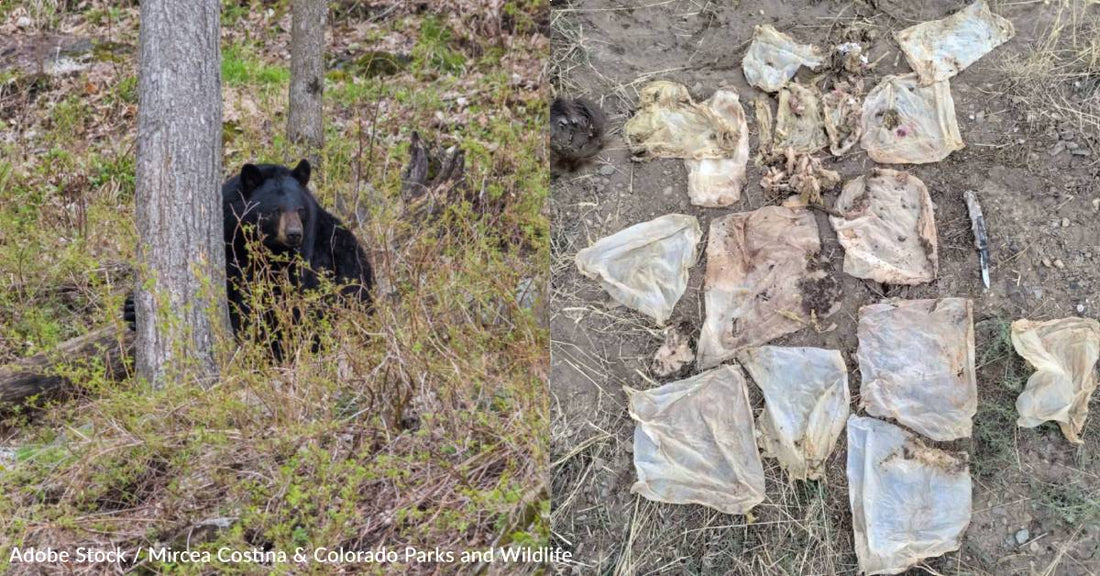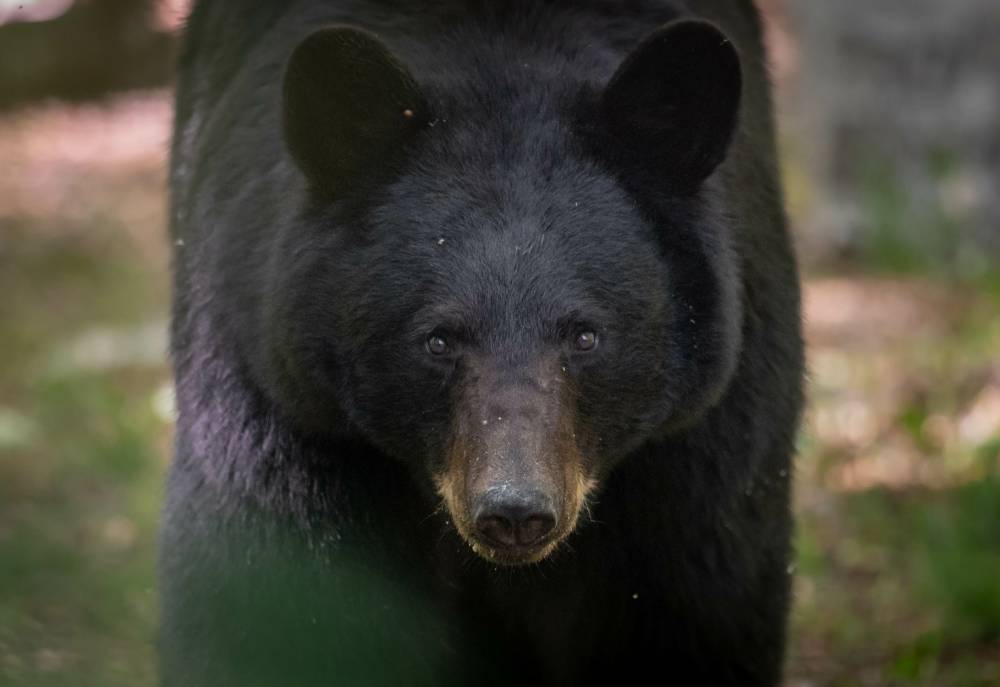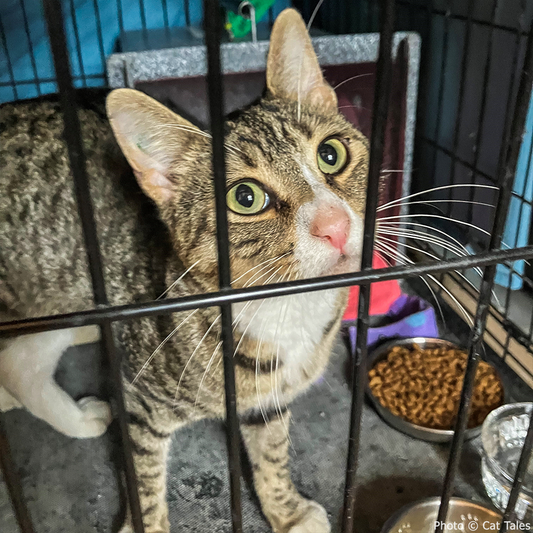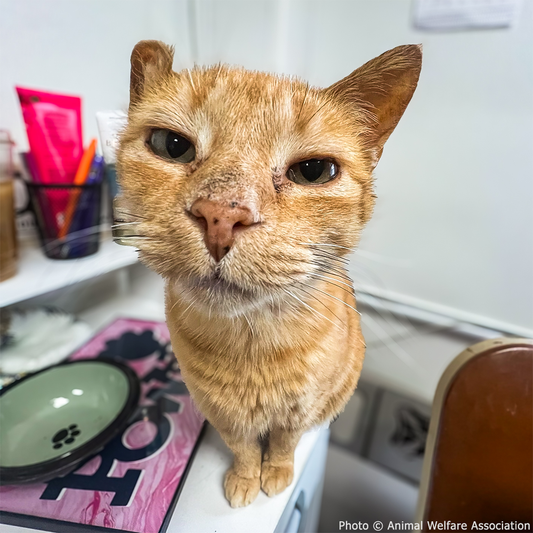Colorado Wildlife Officers Euthanize Bear Whose Intestines Were Blocked By Trash
Michelle Milliken
A fed bear is a dead bear. That’s a phrase used to encourage people to be careful about bears accessing their food or garbage, as it often leads to the animal being euthanized. A new story out of Colorado well illustrates this fact.
Colorado Parks & Wildlife were recently called to help with a sick black bear that was wandering along a river trail in Telluride. The 400-pound male was acting feverish, had puffy eyes, and had discharge coming from its eyes and mouth. The officers who responded said it also appeared to have severe abdominal pain and was reluctant to move.
The bear was known in the area due to its tendency to frequent public spaces. Hazing had worked in the past, but on this particular day, it wasn’t responding to hazing efforts, even bluff charging one of the officers. Ultimately, the decision was made to euthanize.
When a necropsy was later performed, they found the reason why the bear had been ill: human garbage was blocking its intestines.
 PHOTO: COLORADO PARKS AND WILDLIFE
PHOTO: COLORADO PARKS AND WILDLIFECPW District Wildlife Manager Mark Caddy explains, “The removal of the stomach and intestines showed that the bear was starving due to a plug of paper towels, disinfectant wipes, napkins, parts of plastic sacks and wax paper food wrappers in the pylorus. This plug was accompanied by French fries, green beans, onions and peanuts. The small and large intestines were empty of matter. The intestines were enlarged due to bacteria in the beginning stages of decomposition, but we opened them up in several locations and found no digested food matter.”
Officials say this unfortunate incident serves as a reminder to properly store trash to keep bears safe. When you’re enjoying outdoor recreation, always remember to dispose of all garbage, even food scraps, in a secure trash can or dumpster and close the lid. Don’t leave anything on the side if a can is full. Residential or business trash cans may also need to be bear-proof, while Telluride also requires such containers to have a lockable device.
 BLACK BEAR. PHOTO: ADOBE STOCK / MIRCEA COSTINA
BLACK BEAR. PHOTO: ADOBE STOCK / MIRCEA COSTINA
Taking steps like this can save an animal a lot of suffering.
CPW Area Wildlife Manager Rachel Sralla says, “When you have a very fat 400-pound bear, it will take it ages to starve to death. That’s a horrific way to die, decaying from the inside out for that long. As officers, we had to make an unfavorable call. It’s a call we wish we never had to make.”
Michelle has a journalism degree and has spent more than seven years working in broadcast news. She's also been known to write some silly stuff for humor websites. When she's not writing, she's probably getting lost in nature, with a fully-stocked backpack, of course.





















